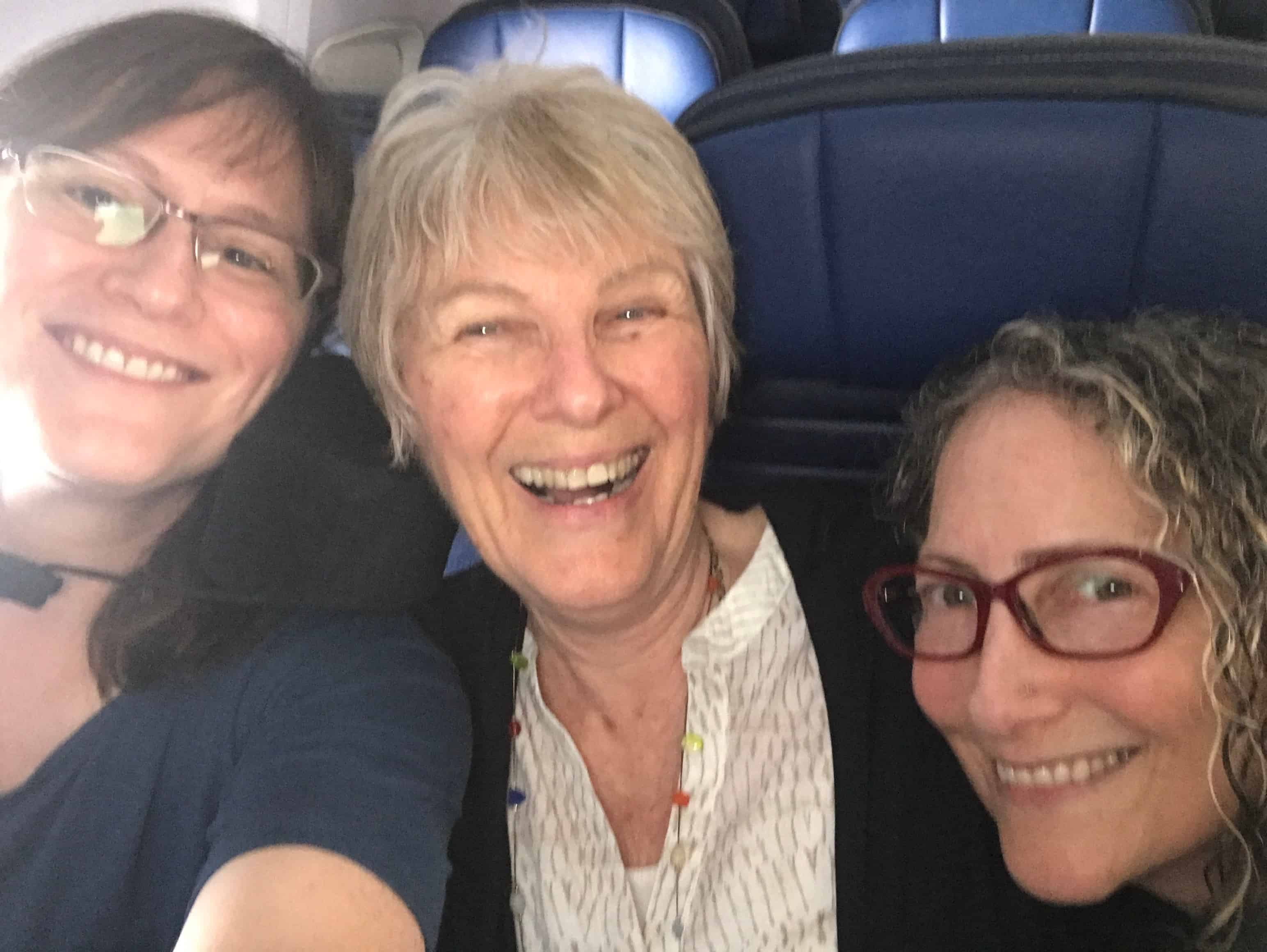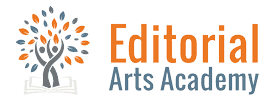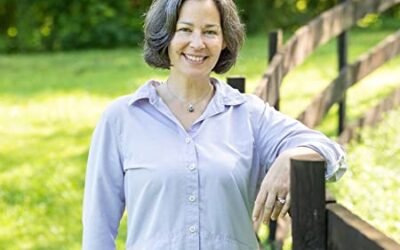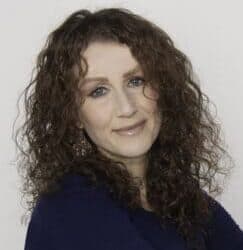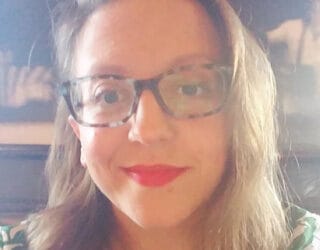One of the fastest ways to learn about the field of freelance editing is to attend a regional or national conference. This summer, Susannah and I did just that. Gathering with over two hundred freelance editors, writers, indexers, translators, and other editorial professionals, we attended the Editorial Freelancers Association’s biennial conference, August 21–23, 2019 at the Swissôtel Chicago.
Our intention was to network with colleagues and get the update on practices of the profession so we could pass on valuable nuggets to our students at Editorial Arts Academy. We also planned to contribute by presenting our niche topic, Editing Books for Non-Writer Authors, at the conference’s poster session.
Susannah and I were joined by Sheryl Rapée-Adams, a new friend who’s taken our live courses (and just got her first freelance editing gig from Penguin Random House) for a two-day adventure that included drinking in the sights of Chicago. But we spent most of our time immersed in the gold mine of information and strategies offered at the conference, gleaning much wisdom from the varied palette of presenters. Here are some highlights in the form of key takeaways (and accompanying resources!) I want to pass on for your success as a freelance book editor.
But First, a Little Context
We left Burlington, VT, on a Wednesday afternoon and flew into the Windy City just in time to attend the conference’s kick-off reception. Having never been to an editors’ conference in my twenty-four years as a freelancer (do not make that mistake!), I didn’t know what to expect, but I was pleasantly surprised by the collegiality of the attendees and the easy schmoozing that a glass of wine and some fine hors d’oeuvres made possible. Not to mention the drop-dead view of the Chicago skyline from the wraparound windows of our reception area at a top floor of the hotel.
Pat Dobie, a fiction writer and freelance editor from Vancouver, Canada, who we knew preconference, joined Susannah and me for postreception stroll along the river that runs through downtown Chicago, right across the street from our hotel. As we walked, we told Pat about our plans to form an advisory board for our EAA classes and invited her to come on board. She enthusiastically accepted our invitation—and a few minutes later, I kid you not, the sky over Lake Michigan lit up with a full display of fireworks! (I later learned the city does this every Wednesday evening in the summer—but really, could it be any more prophetic?)
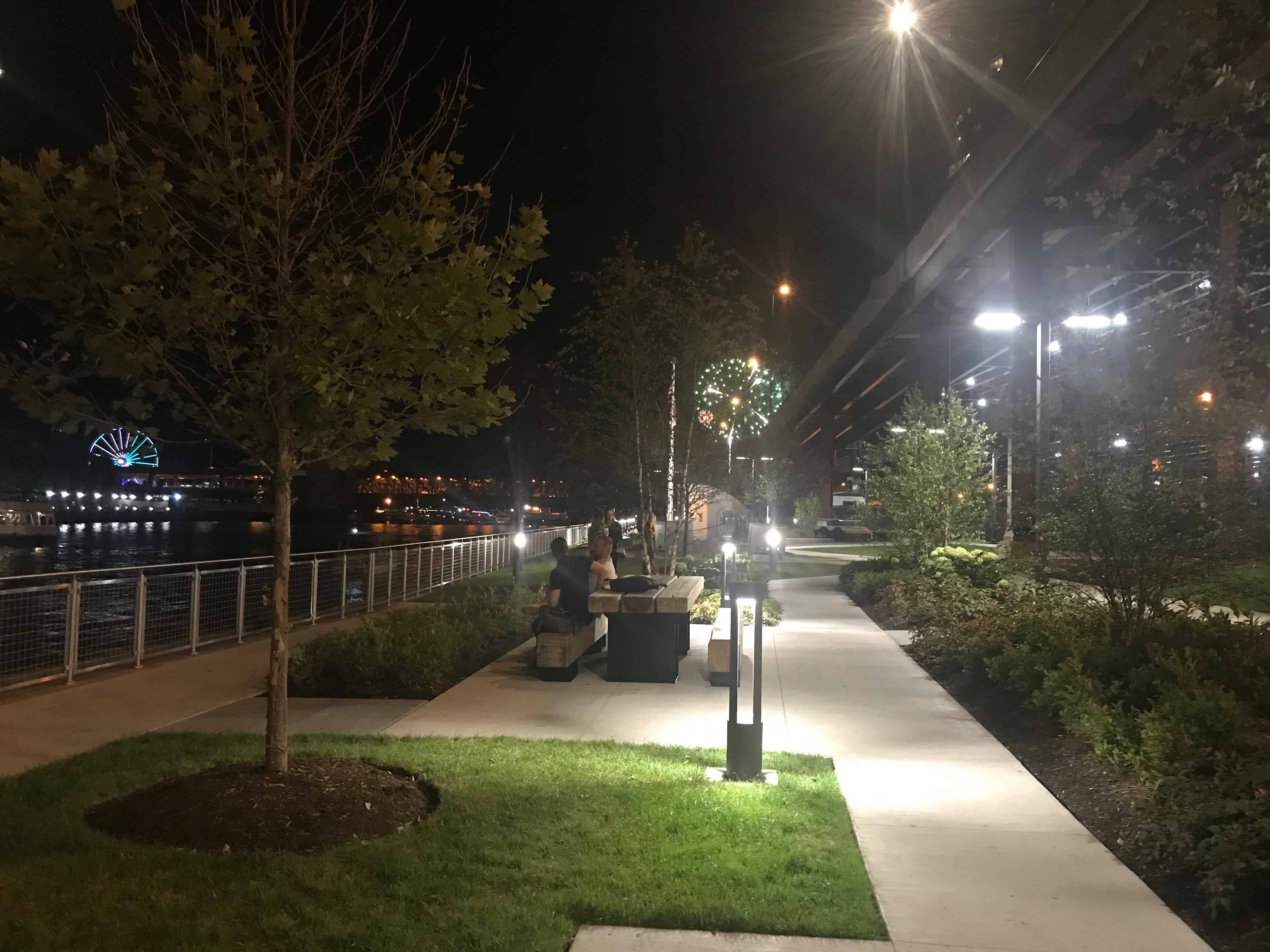
The Chicago Riverwalk was thoroughly delightful.
Okay, here are the key takeaways for all who aspire to success in freelance book editing:
1. Build Trust into Your Editing Brand
The first morning, Sheryl, Susannah, and I met at breakfast for the opening keynote by Louise Harnby, a woman whose rock star status among freelancers, I would learn, was well deserved.
After a brief introduction, Louise spoke extemporaneously in her delightful British accent for the next hour about Beyond Visibility: Building Trust, Getting Work, and Saving Time, weaving the three topics together for a compelling case for working smart.
While visibility is the big push for most freelancers, Louise explored a most human—and important—element in the process: building trust. Trust is important, she told us, because it changes the conversation. It improves the outcomes, as your expectations around being paid, wait lists, fees, etc., are more likely to be met, and you’re less likely to be canceled on, or be at the mercy of difficult clients. With trust in place, clients are likely to be happier with their choice of hiring you and to stick with you. This translates to you having wait lists rather than the dreaded “business famine.”
Louise explained that editors shouldn’t make their digital footprint all about themselves: their qualifications, their training, why they’re so great. Instead, make it about the author’s book, their problems, and helping them to be great. How do you do this? Create content that answers the questions they are asking. Not only does that engender trust, it’s how they will find you, not through your name or credentials but by way of what you can do for them.
Takeaway: When increasing your visibility, always keep relationship-building in mind, and be willing to put in the time it takes to create content that builds trust.
2. Support Your Authors in Their Publishing Goals
Ally Machate led off my first morning session entitled From Shy to Bold: Querying, Proposing and Getting Published, aimed at helping editors help their clients to deal with traditional publishing hurdles that lie on the other side of the editing process. A veteran of the Big 5 publishing world (Simon & Schuster, Penguin Random House, HarperCollins, Hachette, and Macmillan), Ally is well positioned to pose the question: What do publishers and agents really want from authors? Answer: They want a partnership. Not just a book, but a partner in marketing that book.
Publishers also want authors to follow submission guidelines and not get creative. Query letters should only have four paragraphs: 1) the opening hook, 2) a brief synopsis or description of the project, 3) the author platform, and 4) a closing “ask.” For more, Ally directed us to her resource-packed website and especially this article giving examples of great query letters. In addition, she gave us a reality shakedown regarding all the hoops an author needs to jump through to actually be selected by a publisher. (Hint: there are many, and your clients need to be aware that it’s a multi-step process.)
Ally’s focus on book editing, EAA’s particular focus, led me to go to her second session in the afternoon, this time in Guiding Clients to Successfully Self-Publish. A veritable fountain of information for authors who want to publish books, Ally did not disappoint. “Tell them it’s not their baby,” she warned, urging editors to bust any author bubbles about what lies ahead after editing.
Her stats on how traditionally published books make authors 58% more money than the DIY route were eye-opening. Another astonishing stat: 10% of self-published authors earn 75% of reported income from self-publishing.
Takeaway: Be informed about the process your authors face on their way to publication (both DIY and traditional) so they have realistic expectations and can maneuver the ropes successfully.
3. Know How to Negotiate Your Editing Fees
Another session I attended was with Jake “Dr. Freelance” Poinier entitled How Should I Price It? With an emphasis on interaction, his talk took us through several scenarios with projects that needed to be carefully priced and had participants offer their assessments. I enjoyed hearing how other editors handled potentially red flag clients in a range of different editing situations. Yes, it’s a Wild West out there, as I’ve often said, with few strict rules to follow about who can do what, how, when, and for how much. . . .
Takeaway: Always be prepared to negotiate if you’re presented with a project that looks iffy. Make it work for you, your time, and your money. If the client goes for it, great. If not, let it go.
Lunch was with the group in the main room, a fresh and healthy buffet of salads, veggie dishes, and chicken/fish entrees that we all enjoyed as we sat together and compared notes. Each of us, of course, were having our own unique experience: Susannah as a fiction copyeditor feeling right at home, Sheryl as a newbie to the trade dealing with her first assignment, and yours truly as a nonfiction developmental editor taking in the dazzling variety of editorial services #EFACON19 was attempting to cover.
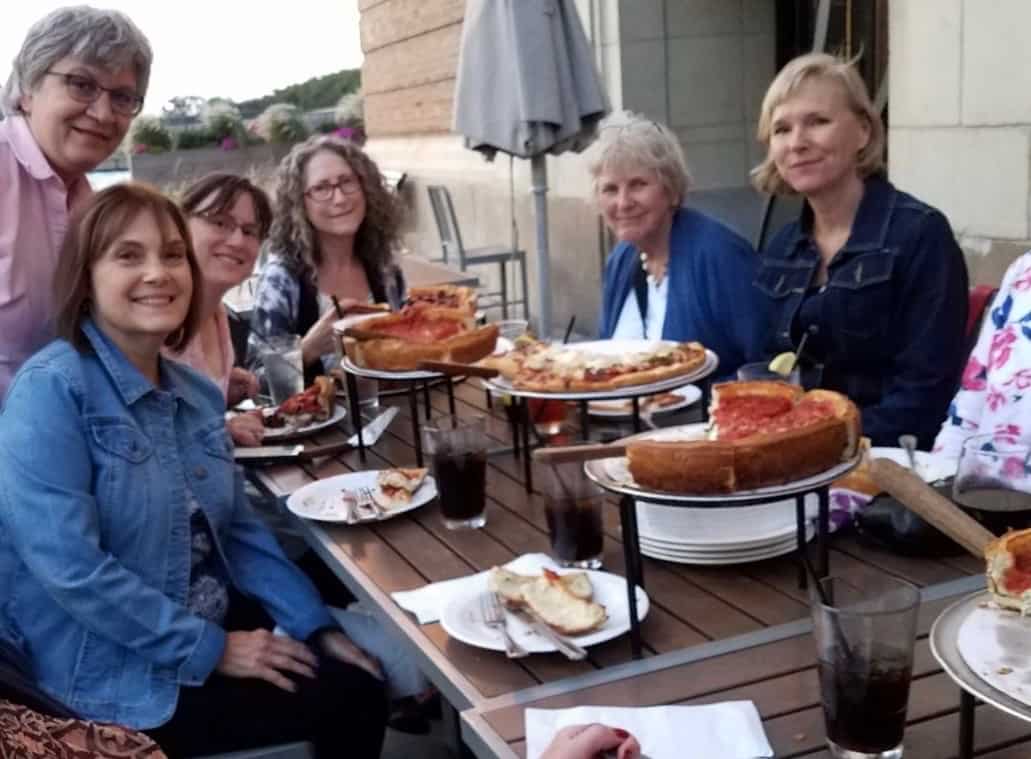
The end of that first full day found twenty us traipsing off through city streets to the famed Giordano’s for deep dish pizza at the Navy Pier, taking in the sights along the way. Over the most yummy deep dish (“stuffed”) pizza (a Chicago specialty), we chatted and made new friends. And then I called for an impromptu toast for Susannah’s birthday!
Well rested, the three of us emerged from our rooms for a second day to gather in the main conference room and hear the opening keynote by Marilyn Schwartz, “Grammar Hobby” to Profession: Revising a Classic Handbook for Copyeditors. Marilyn coauthored the fourth edition of the indispensable Copyeditor’s Handbook. Her talk was a tour de force, as Marilyn recounted the history of the copyediting profession peppered with personal anecdotes from her many years in the trenches, much of it predating the emergence of freelancers and the new technology. Some valuable references she mentioned were Google Docs for Editors by Karin Horler (I bought a copy immediately), and Marilyn’s recommended best dictionary: Merriam-Webster Collegiate 11th edition (available online).
4. Market Your Editing Business from the Heart
A late-morning panel got my attention: Selling It: Marketing Strategies and Tips for Freelancers, presented by panelists Naomi Kim Eagleson, Jake Poinier, and Ruth E. Thaler-Carter. I was thrilled that their advice did not cover social media as the main way of marketing (important, yes, but already covered by so many presenters), but instead emphasized the more human side of things, such as referrals, live person-to-person networking, and flat-out asking.
In the digital realm, advice included having a website to brand your business and put up your portfolio online, which has been my main way of marketing since the beginning of my career. Relying more on face-to-face contact or referral from authors, I’ve used my website to back up my expertise and niche.
Takeaway: In the new paradigm of networking, what matters is that you genuinely care about the person, and then trust (that word again!) to take a risk and step out to connect.
Lunchtime had us once again moving about the streets of the city. After finding a healthy fast-food venue, we strolled over to to Millennium Park where we ogled the Cloud Gate (aka “The Bean”), a monumental sculpture and glistening archway to stroll around and through for a vortex of reflections that inspired many selfies—our own included.
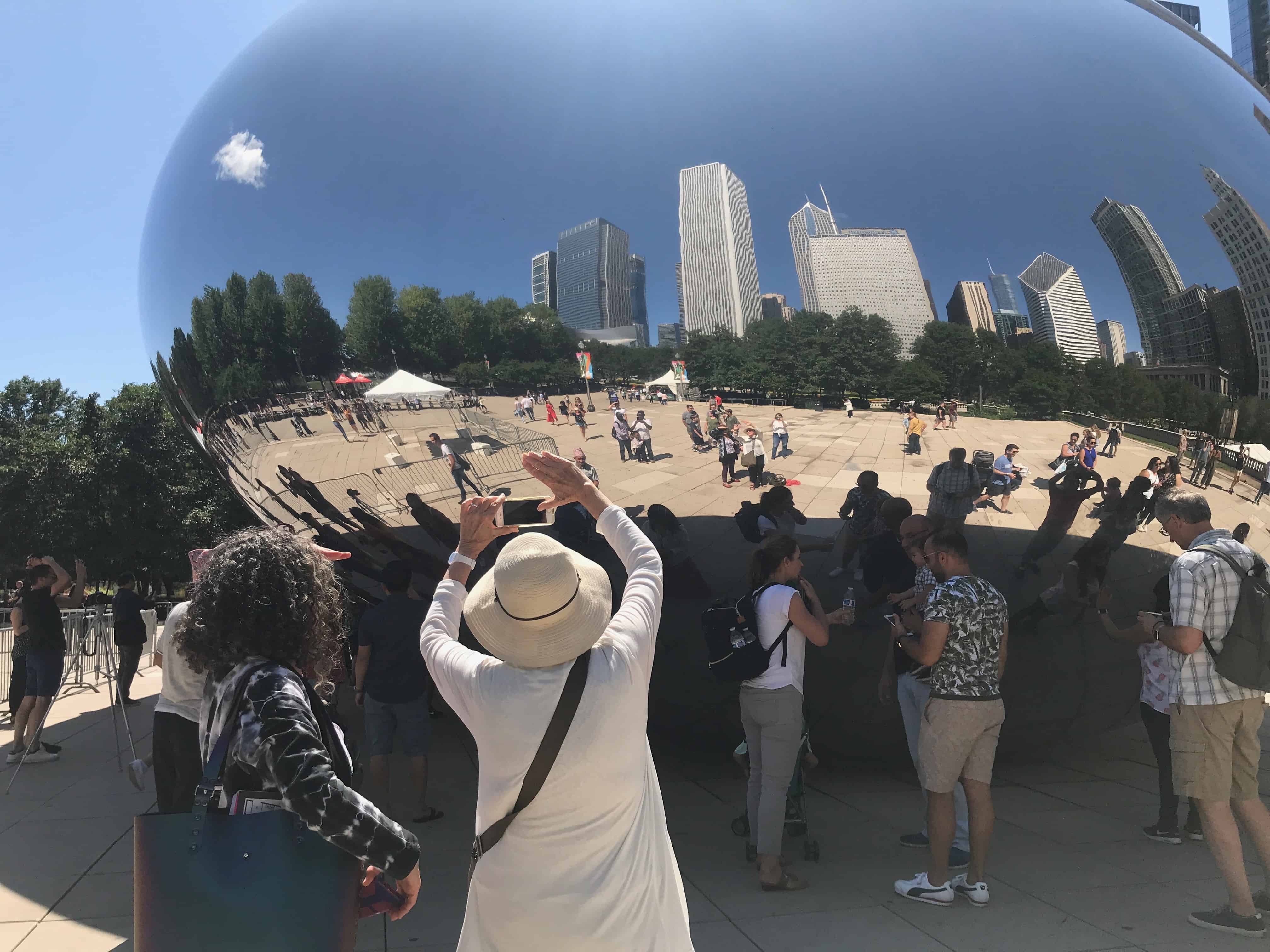
We acted like tourists and took our pictures reflected in the Cloud Gate sculpture in Millennium Park.
5. Work Your Editing Niche
One of my favorite events was the Day 2 Poster Session, an opportunity for some of us to display a niche aspect of our business that others would find interesting and relevant. Susannah and I chose to highlight a new course, Editing Books by Non-Writer Authors: Helping Authors with Minimal Skills Produce Great Books, now offered by me through EFA as a four-week self-paced class. Lots of interest in the topic ensued, consisting of many who stopped by to chat and learn about this area of EAA’s expertise as well as the existence of our curriculum and offerings. I took a spin around the room and learned from such presentations as Applying Principles of Psychotherapy for Better Editing with Jaclyn DeVore, The Heilmeier Catechism (a list of questions to ensure success when writing proposals) with Melissa Hellman, and Mastermind Groups with Lori Paximadis and Amy Schneider.
Takeaway: In a field that is as widespread as freelance editing, it helps to establish yourself in an area of expertise, yet still be able to step outside that niche to give broader services when opportunities arise.
Having seen some of the Chicago traffic coming in from O’Hare, we opted to cut it short and catch a ride back to the airport with plenty of time to make our 6:30 flight. We arrived back in Burlington having created new bonds, full of ideas and information to pass on, and oh yes, very glad we’d had so much fun!
